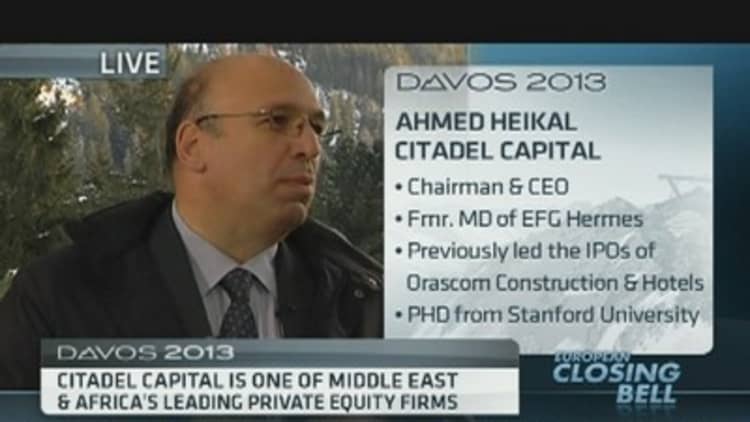South African President Jacob Zuma on Wednesday questioned whether Africa was more risky than other regions across the globe, arguing in a CNBC-moderated debate at the World Economic Forum in Davos that the continent was growing and moving forward.
"It looks like there is a perception about Africa that needs to be dealt with. I think there is evidence that Africa is growing. There is also evidence that African leaders have collectively come together to do things that is going to make Africa move forward," Zuma said.
"We have collectively dealt with the issue of democracy in the continent of Africa. We are entrenching democratic rule," he said.
(Read more: After Davos: Global Calm or Profound Change?)
The African region bounced back quickly from the 2008-2009 financial crisis and is seeing growth at levels well above those seen in developed economies, but analysts have questioned whether it can sustain such levels of growth.

Zuma's South Africa has also suffered from labor tensions, including a wildcat strike at platinum miner Lonmin's Marikana mine which resulted in 47 deaths and garnered international attention.
Zuma said South Africa had "seen the worst" of labor tensions and that the government was dealing with the issue.
(Read more: Davos 2013 Live Blog)
"We are discussing the matter. All stakeholders," he said. "We've had a meeting where we all met to see how do we address the issues that are prevailing."
He blamed Lonmin for the Marikana deaths, saying its decision to conduct negotiations with a particular union threatened an agreement already in existence.
"Other workers began to say: if you can reach this agreement then why not us? That's what sparked off the labor unrest," Zuma said. The problem originated with the private sector, he said, and was not the result of a lack of governance.
The solution, he said, was to return to "the system which was functioning very well."




